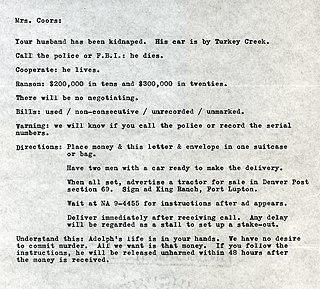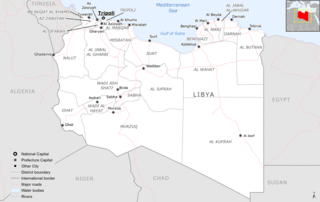Related Research Articles

The Universal Declaration of Human Rights (UDHR) is an international document adopted by the United Nations General Assembly that enshrines the rights and freedoms of all human beings. Drafted by a UN committee chaired by Eleanor Roosevelt, it was accepted by the General Assembly as Resolution 217 during its third session on 10 December 1948 at the Palais de Chaillot in Paris, France. Of the 58 members of the United Nations at the time, 48 voted in favour, none against, eight abstained, and two did not vote.

The International Covenant on Civil and Political Rights (ICCPR) is a multilateral treaty that commits nations to respect the civil and political rights of individuals, including the right to life, freedom of religion, freedom of speech, freedom of assembly, electoral rights and rights to due process and a fair trial. It was adopted by United Nations General Assembly Resolution 2200A (XXI) on 16 December 1966 and entered into force on 23 March 1976 after its thirty-fifth ratification or accession. As of June 2024, the Covenant has 174 parties and six more signatories without ratification, most notably the People's Republic of China and Cuba; North Korea is the only state that has tried to withdraw.
U.S. Immigration and Customs Enforcement is a federal law enforcement agency under the U.S. Department of Homeland Security. ICE's stated mission is to protect the United States from cross-border crime and undocumented immigration that threaten national security and public safety.

Human rights in post-invasion Iraq have been the subject of concerns and controversies since the 2003 U.S. invasion. Concerns have been expressed about conduct by insurgents, the U.S.-led coalition forces and the Iraqi government. The U.S. is investigating several allegations of violations of international and internal standards of conduct in isolated incidents by its own forces and contractors. The UK is also conducting investigations of alleged human rights abuses by its forces. War crime tribunals and criminal prosecution of the numerous crimes by insurgents are likely years away. In late February 2009, the U.S. State Department released a report on the human rights situation in Iraq, looking back on the prior year (2008).

Extraordinary rendition is a euphemism for state-sponsored kidnapping in another jurisdiction and transfer to a third state. The phrase usually refers to a United States-led program used during the War on Terror, which had the purpose of circumventing the source country's laws on interrogation, detention, extradition and/or torture. Extraordinary rendition is a type of extraterritorial abduction, but not all extraterritorial abductions include transfer to a third country.
The American-Arab Anti-Discrimination Committee (ADC) states that it is "the largest Arab American grassroots civil rights organization in the United States." According to its webpage it is open to people of all backgrounds, faiths and ethnicities and has a national network of chapters and members in all 50 states. It claims that three million Americans trace their roots to an Arab country.
Extrajudicial prisoners of the United States, in the context of the early twenty-first century War on Terrorism, refers to foreign nationals the United States detains outside of the legal process required within United States legal jurisdiction. In this context, the U.S. government is maintaining torture centers, called black sites, operated by both known and secret intelligence agencies. Such black sites were later confirmed by reports from journalists, investigations, and from men who had been imprisoned and tortured there, and later released after being tortured until the CIA was comfortable they had done nothing wrong, and had nothing to hide.

Human rights in Kyrgyzstan improved after the ouster of President Askar Akayev in the 2005 Tulip Revolution and the installment of a more democratic government under Roza Otunbayeva. While the country is performing well compared to other states in Central Asia, many human rights violations still take place. While LGBT rights have been declining in recent years, freedom of press has been improving.

Human rights in Libya is the record of human rights upheld and violated in various stages of Libya's history. The Kingdom of Libya, from 1951 to 1969, was heavily influenced and educated by the British and Y.R.K companies. Under the King, Libya had a constitution. The kingdom, however, was marked by a feudal regime. Due to the previous colonial regime, Libya had a low literacy rate of 10%, a low life expectancy of 57 years, with many people living in shanties and tents. Illiteracy and homelessness were chronic problems during this era, when iron shacks dotted many urban centres on the country.
Administrative detention is arrest and detention of individuals by the state without trial. A number of jurisdictions claim that it is done for security reasons. Many countries claim to use administrative detention as a means to combat terrorism or rebellion, to control illegal immigration, or to otherwise protect the ruling regime.

Human rights in the Middle East have been shaped by the legal and political development of international human rights law after the Second World War, and their application to the Middle East. The 2004 United Nations Arab Human Development Report (AHDR) claimed that although Arab-Islamic tradition does hold unique importance for ideas of human welfare, History has proven that "they were not sufficiently prevalent in society to foster a culture based on a political contract, and allow for the legitimacy of differences of opinion, dialogue and transfer of power." Issues of the validity of democracy in the region and human rights are at the very centre of the challenges facing Middle Eastern society today.
Human rights in Egypt are guaranteed by the Constitution of the Arab Republic of Egypt under the various articles of Chapter 3. The country is also a party to numerous international human rights treaties, including the International Covenant on Civil and Political Rights and the International Covenant on Economic, Social and Cultural Rights. However, the state of human rights in the country has been criticized both in the past and the present, especially by foreign human rights organisations such as Amnesty International and Human Rights Watch. As of 2022, Human Rights Watch has declared that Egypt's human rights crises under the government of President Abdel Fattah al-Sisi is "one of its worst ... in many decades", and that "tens of thousands of government critics, including journalists, peaceful activists, and human rights defenders, remain imprisoned on abusive 'terrorism' charges, many in lengthy pretrial detention." International human rights organizations, such as the aforementioned HRW and Amnesty International, have alleged that as of January 2020, there are some 60,000 political prisoners in Egypt. Other complaints made are of authorities harassing and detaining "relatives of dissidents abroad" and use of "vague 'morality' charges to prosecute LGBT people, female social media influencers, and survivors of sexual violence." The Egyptian government has frequently rejected such criticism, denying that any of the prisoners it holds are political prisoners.
Arbitrary arrest and arbitrary detention is the arrest or detention of an individual in a case in which there is no likelihood or evidence that they committed a crime against legal statute, or in which there has been no proper due process of law or order.
Mansour Rashid Kikhia was the Libyan Minister of Foreign Affairs (1972–1973), Libyan Ambassador to the United Nations, Permanent Libyan Representative to the United Nations (1975–1980), and later an opposition figure to Libya's leader Muammar Gaddafi, and human rights activist.
Indefinite detention is the incarceration of an arrested person by a national government or law enforcement agency for an indefinite amount of time without a trial. The Human Rights Watch considers this practice as violating national and international laws, particularly human rights laws, although it remains in legislation in various liberal democracies.

The human-rights situation in Benin is considered to be generally above average for sub-Saharan Africa.

The Central African Republic, which the United Nations High Commissioner has described as undergoing "the most neglected crisis in the world", has an extremely poor human rights record. It has been designated 'Not Free' by Freedom House from 1972 to 1990, in 2002 and 2003, and from 2014 to the present day. It was rated 'Partly Free' from 1991 to 2001 and from 2004 to 2013. On the United Nations Human Development Index, it ranks 179 out of 187 countries. Between 1988 and 2008, life expectancy decreased from 49 years to 47.7 years.

The United States government holds tens of thousands of immigrants in detention under the control of Customs and Border Protection and the Immigration and Customs Enforcement (ICE).

Togo in West Africa is currently rated as "Partly Free" by Freedom House.

Detention centres in Libya are criminal enterprises run by gangs of human traffickers and kidnappers for profit. Lawlessness in Libya has resulted in circumstances where criminals gangs abduct and detain people who are migrating to or through Libya. 5,000 migrants are held in dozens of camps that are mostly located around Bani Walid. Detainees often suffer torture and may face execution if their family do not pay ransoms to the gangs.
References
- ↑ "Announcement of the establishment of the Libyan League for Human Rights issued on 2 March 1989". LLHR. 2005-03-19. Archived from the original on 2016-09-01. Retrieved 2011-03-14.
- ↑ "Libyan League for Human Rights".
- ↑ "Libya/Germany: Libyan League for Human Rights/Germany; its membership; size of organization; location other than Germany; whether one can be member and not reside in Germany". UNHCR. 2011-03-09. Archived from the original on 2012-10-17. The UNHCR cited a telephone interview with a professor of political science in San Antonio, Texas.
- ↑ "PRO-GADHAFI KIDNAP GANGS SILENCE FOES". MSNBC. 2011-03-09.[ dead link ] MSNBC cites interview with Libyan League for Human Rights North America spokesperson.
- ↑ "No to the Death Penalty in Iraq and Everywhere". libya-watanona.com. Archived from the original on 2016-03-03. Retrieved 2011-03-10.
- ↑ "Statements of LLHR". LLHR.
- ↑ "Statements of LLHR". LLHR.
- ↑ "American Citizen Detained in Libya". LLHR.
- ↑ "Statements of LLHR". LLHR.